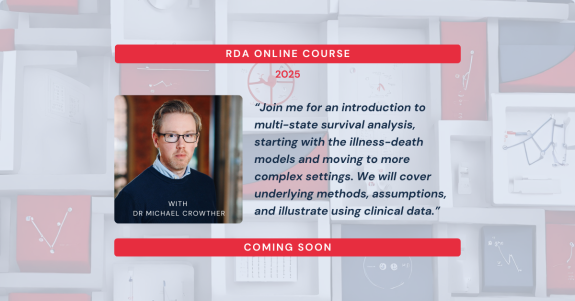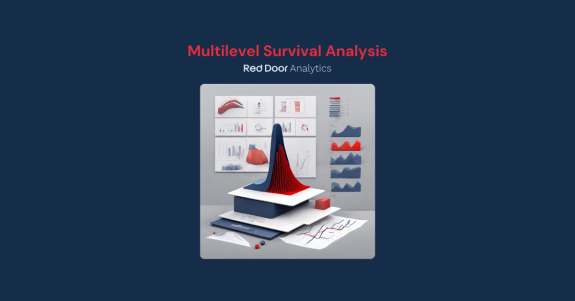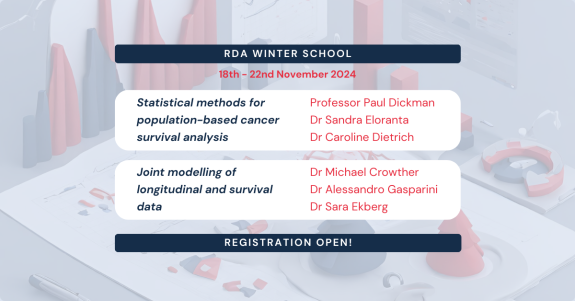
When
Sign up for our newsletter at the bottom of this page to be notified about new course offerings for this course.
This course has been given on the following occasions: Tuesday, 4th March 2025
| Course Schedule | Time (CET) | Content |
| 09:00 – 12:00 | Lectures | |
| 13:00 – 17:00 | Computer practical |
Where
This is a one-day online course consisting of lectures and a computer practical.
Course description
Survival (or time-to-event) analysis is used to analyse data such as the failure of a mechanical component, the onset of a disease, or the death of an organism. This introductory course will provide you with an in-depth introduction to the core concepts, methods and software needed to start your journey into the world of survival analysis. Overview of lectures content:
- Basic concepts in survival analysis, risk-time, timescales, and censoring.
- Survival analysis using Stata.
- Rates, survival, Kaplan-Meier, and comparing survival.
- Hazard and cumulative hazard.
- Parametric survival models, the Cox model.
- The proportional hazards assumption, and allowing for non-proportional hazards.
A previous version of this course is also available on our YouTube channel!
Faculty
Hannah Bower, PhD
Director of Applied Biostatistics
Red Door Analytics
What to expect
The course instructor has formal training in statistics and biostatistics and experience in developing statistical methods and applied clinical research. The course will consist of a mix of statistical concepts and applied examples, with emphasis on interpretation and practical aspects (such as computing). Course material, including lecture slides, tutorial exercises and solutions, and additional references for further reading will be provided.
Computing
The primary software for the course will be Stata (version 14 or higher), but full R solutions to all practical exercises will also be provided.
Who should attend?
Epidemiologists, statisticians, physicians, public health specialists or anyone with an interest in methods for survival analysis. The course focuses on the analysis of time-to-event data in medical settings, but we welcome participants with interests in other areas; the methods we teach can be applied to other research areas as well.
Expected prior knowledge
We expect participants to possess basic knowledge of the fundamentals of epidemiology and biostatistics and be comfortable fitting and interpreting statistical models in epidemiology (e.g., linear regression, logistic regression). Prior basic knowledge of Stata will be assumed.
Registration
Registration for this course is currently closed. To keep up to date on when the next edition of this course (and all our other courses!) will be running, make sure to subscribe to our email list.












